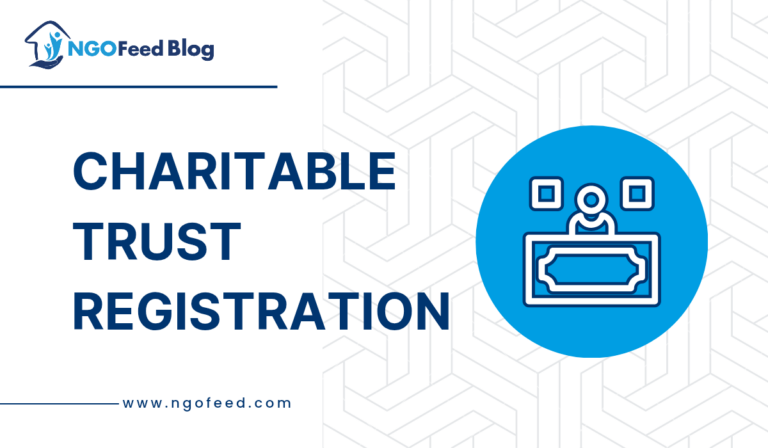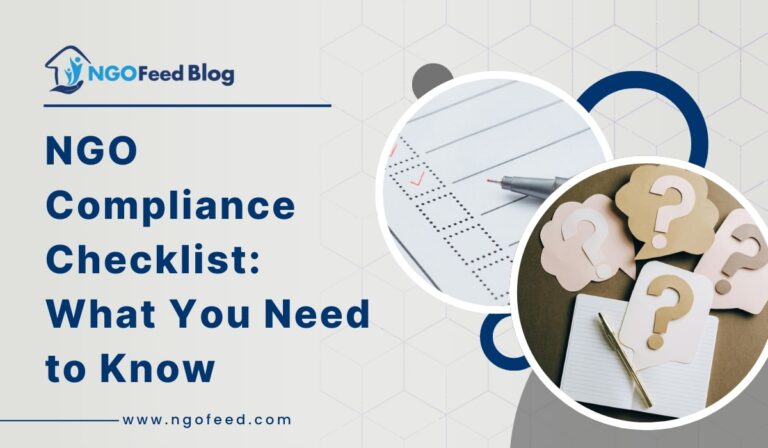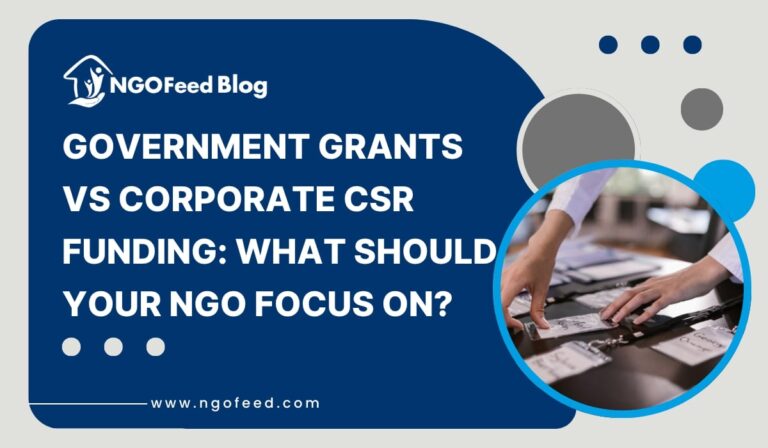Trust Vs Society Vs Section 8: When conceptualising a nonprofit or charitable organisation in India, selecting an appropriate legal structure is of utmost importance. The three most popular types of not-for-profit entities are trusts, Societies, and Section 8 Companies. Although the three have similar purposes, including providing education, healthcare, social welfare, environmental protection, or other social benefits, they differ in their legal structure and formation, as well as in their regulation and governing factors.
Both of the structures have their own set of benefits and drawbacks. Trusts are also relatively simpler to establish and run with minimum formalities. Societies provide democratic controls, and this would suit member-based organisations. Section 8 Companies, due to the Companies Act, 2013, are considered the most credible and professionally run among the three of them, and this is why they are mostly preferred in matters of carrying out operations on a large scale or the basis of a grant.
Whether to be a trust, society or Section 8 company depends on the character of your mission, scale and scope of work, compliance level one wants and funding strategy. In this paper, we consider the most prominent distinctions between the two types of entities so that you can make an informed choice and work out the most appropriate structure to achieve an intended impact on society and sustainability.
Also Read: Cultural Appropriation Vs Cultural Respect in NGO Campaigns
Table of Contents
Trust Vs Society Vs Section 8: Understanding the Legal Structures
In India, the persons or a group of persons who would like to incur the work of a social cause, charitable cause, educational cause, or even a philanthropic-based cause may form their organisation into a Trust, Society, or a Section 8 Company. All three are legal forms of non-profit organisation, although they are largely different in relation to laws that govern them, their statement and administration methods.
Whether a private Trust or a state-specific public trust, it is the Indian Trusts Act, 1882 (or state-specific public trust acts) that governs a Trust. It consists of a settlor who contributes property or money, trustees, who administer the trust, and beneficiaries, who are the beneficiaries of the same. Trusts are usually suitable in cases of ventures that are run by a family or philanthropic organisations, where decision-making involves fewer individuals.
Also Read: FCRA Rules 2025: What Every NGO in India Must Know
The Societies Registration Act, 1860 the governs a Society. It is an association of people used to create an organisation to carry out such activities as education, culture, science, or social welfare. The societies must have at least seven members to be registered and extoll democratic virtues and have a governing body that is elected. They suit well for organisations or those that require community participation or stakeholders.
Section 8 Company is governed by the Companies Act, 2013. It is established with a charitable or not-for-profit purpose, and it performs as a company, but its aim is not the distribution of profits. The norms of compliance and governance standards of Section 8 Companies are higher and therefore, this entitles them as a very credible organisation in the eyes of donors, corporates and government agencies.
An awareness of these structures is the bedrock upon which to determine the appropriate legal form to adopt in your non-profit initiative.
Trust Vs Society Vs Section 8 Comparison of Key Features
In choosing the appropriate structure of your non-profit, you may like to compare the main characteristics of a Trust, a Society and a Section 8 Company to get an idea of which one may be more appropriate for your objectives. The following is the comparative analysis made based on essential parameters:
Governing Law
- Trust: Indian Trusts Act, 1882 (State Trust Acts, as the case may be)
- Society: Societies Registration Act, 1860
- Section 8 Company: Companies Act, 2013
Also Read: Values Driven Fundraising
The Registration Authority
- Trusts, Sub-Registrar of Trusts (State level)
- Society: Registrar of Societies (State level)
- Section 8 Company: Registrar of Companies (Ministry of Corporate Affairs)
Minimum of Members
- Trust: The trust occupation: Two or more trustees
- Society: 7 members minimum (8 national level)
- Section 8 Company: It must have at least 2 directors (private) or 3 directors (public)
Legal Status and Recognition
- Trust: It is not a legal entity by itself; acts in the name of a trustee
- Society Societas: not an entity with separate legal continuity; requires renewal of the annual reports
- Section 8 Company: Those companies with legal existence; those companies whose existence is perpetual
Governance Structure
- Trust: They are administered by trustees (lifetime or nominated)
- Society Structure: It is controlled by a Governing Body or Executive Committee
- Section 8 Company: The company is managed by the Board of Directors under the Companies Act
Requirement of Compliance
- Trust: Dirgefully bad obedience
- Society: middle (renewal, yearly reports and conferences)
- Up: ROC, Section 8 company: ROC deadlines, board forms
Also Read: NGO Darpan Registration
As the representatives of donors/grants’ credibility
- Trust: Moderate
- Society: A mid-level to high society
- High: Section 8 Company (corporates and international donors would use this)
This comparison is here to assist you in the legal, operational, and compliance considerations of each structure in order to come to their appropriate conclusion.
Which Structure Should You Choose?
Which to adopt: Trust, Society, Section 8 Company Trust, Society, Section 8 Company- these three options depend upon the aspirations of your organisation, the size of the organisation, the mode of funding, and the extent of Governance and transparency that your organisation requires. All of these structures are catering to various forms of initiatives and stakeholders. So here are some guidelines to make your decision:
Select a Trust in case:
- You need a straightforward structure that is simple to register.
- Your organisation runs with just a handful of people (manages it just like a family-run charity).
- You do not intend to get big collections of money in donations to the public or grants abroad.
- You like little compliance and formalities.
Most suited: Philanthropic or religious projects of a small scale, preferably local in nature.
Choose a Society when:
- The structure of your organisation is member-driven and involves cultural, educational or social welfare services.
- You would prefer a democratic system where there are elected office-bearers.
- Your approach will be to work within the communities or states with greater involvement.
- You feel medium compliance (e.g. annual reports, renewals) is comfortable.
Its speciality suits: Schools, cultural organisations, or charity groups focusing on the community.
When to select a Section 8 Company:
- You want to develop a very credible and professional nonprofit.
- You desire to lure corporate CSR funding, foreign grants, or collaborate with the state institutions.
- You do not mind elaborate compliance, auditing and ROC submissions.
- You are scaling up either nationally or internationally.
Its best use: Startups on the social side, large-scale NGOs, or any organisation that needs institutional funding.
Also Read: Society Registration Process in India
Overall, when you want to be simple, a Trust works. To work in cooperation or grassroots, choose a Society. Section 8 Company is the best bet to garner credibility and scalability, and professionalism.
Pros and Cons of Trust Vs Society Vs Section 8
The knowledge of the strengths and weaknesses of each form can guide you in taking the right decision to set nonprofit or charitable organisation in India. A brief comparison is as follows:
1. Trust
Pros:
- Easy and fast to sign up.
- Cheap formation.
- Weaker rules of compliance.
It is applicable in family-based or faith-based charitable organisations.
Cons:
- It is not democratic (it is run by trustees).
- Lack of a view of transparency amongst the people.
- Not as popular with big donors or the government.
- It is hard to change the trust deed after it has been registered.
2. Society
Pros:
- Promotes the democracy of decisions.
- Meets community-based activities and memberships specifications.
- Established forms of grants and state-level schemes.
- It is easier to engage various stakeholders.
Also Read: Top 10 Government Schemes For NGOs
Cons:
- To register, a minimum of 7 members at least.
- Needs to be re-elected and to file a renewal periodically.
- States have different compliance requirements.
- Threat of intrastate warfare.
3. The Section 8 Company
Pros:
- Assuming the role of positioning very well in the case.
- Suitable as a fundraising tool, CSR and worldwide effort.
- Regulated by the Companies Act, the act that ensures transparency.
- It is legally allowed to open facilities in any location in India without any state restrictions.
Cons:
- Registration is long and complex.
- It will need professional help and proper paperwork.
- Increased compliance and reporting needs that are annual.
- The increased attention of the government and the regulators.
All the structures have distinct merits. You are to rely on your mission, scalability objectives, and the ability to operate. Trusts are easier, but Section 8 Companies are more trusted and far-reaching – at the expense of difficulty.
Also Read: Benefits of Fundraising for Nonprofit Organizations
Frequently Asked Questions (FAQs)
1. Which is the least difficult one to incorporate between Trust, Society and Section 8 Company?
The simplest and fastest one is usually a Trust. It has little paperwork and can be established with only two persons in most states.
2. Which is the most appropriate structure to accept foreign donations (under FCRA)?
Whereas all three of them may submit applications concerning FCRA registration, Section 8 Company is frequently the preference of donors because of its transparency, organisational and even credible governance.
3. Is it possible to convert Trust or Society into a Section 8 Company in future?
No direct legal provision is made as to the conversion between these entities. But, a company under Section 8 can be registered, and the old one can transfer its operations or merge, provided that it complies with the laws.
4. What is the least complaint structure?
The Trusts have the least obligations of compliance, and then come Societies and the highest annual compliance involves Section 8 Companies because they are under the Companies Act.
5. What would be the best form to fit a small community group or local NGO?
This form of Society can be favourable to grassroots work and community-led initiatives as they are largely membership-based, democratically run and able to operate safely in the local area.









